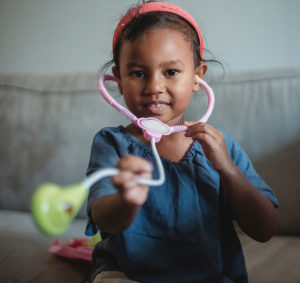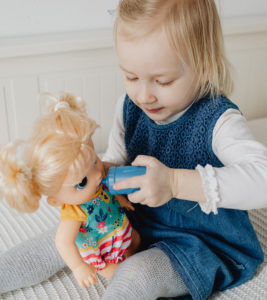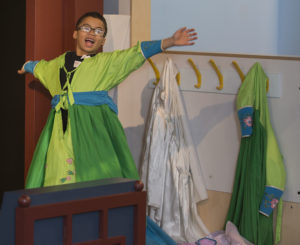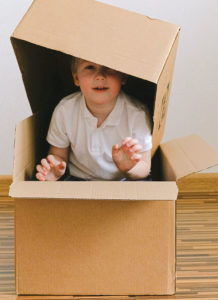Bubble Bash New Year’s Eve | December 31, 9–1

Bubble Bash New Year’s Eve | December 31, 9–1

As an early childhood advocate, I passionately support the important work of children’s play. While PLAY may seem “simple” and just something that children “do,” play is also a critical part of how children learn, develop, navigate conflict, release stress, and process emotions. Play is intrinsically motivated, freely chosen, pleasurable, nonliteral, and an active experience. I often describe observing how children play as a beautiful window into a child’s inner thoughts, feelings, and emotions.

One form of play that involves the use of toys/objects is called dramatic play, when a child is using objects to pretend play and acting out roles with imaginary objects. For example, a child may reenact an episode of Daniel Tiger, or play “house” with Marshall from Paw Patrol with different types of objects found around the house such as bowls, plates, cups, etc. to “play house.”
There are many amazing benefits to this type of play!
As children begin to use objects in fantasy play and take on role-playing, they are learning important skills such as collaboration, language development, persistence, and problem-solving. As caring adults, we have the unique opportunity to serve as the play facilitators and co-learners (learning alongside young children) in supporting dramatic play. So, what does this look like in action with adults?
Role Playing 101

When children engage in role-playing, they see themselves transformed into the “role” of the person in their play. Similar to an actor or actress, children identify with their character and begin to mimic the person of interest by closely observing their voice and actions.
Adults may notice a child mimic them…this is role-playing! Some children may need support to get started with role-playing. Adults can encourage children to take this risk by immersing themselves in the play experience and following the child’s lead. Ask the child questions, model behavior, and add everyday household objects of interest to them.
Examples of Questions:
Objects, Toys, and Materials

Setting the stage for dramatic play does not require expensive or fancy props. Try introducing some of these materials with children to enhance their dramatic play experiences.
Mirror: using a mirror helps encourage a sense of self-identity during role-playing
Dress-up clothing: old t-shirts, hats, socks, vests, and clothing for dolls
Household items: measuring cups, trays for food, rolling pin, plates, silverware, and cups
Musical instruments: tambourine, household pots and pans, wooden spoons, plastic cups
Food: fake food or real food…leftover food boxes work great too!

Flexible and recyclable materials can be used in many different ways: paper (various shapes and sizes), cardboard, blocks, empty pizza boxes, grocery bags and magazines.
Check out this great example of Building with Boxes with children : https://illinoisearlylearning.org/videos/videos-parenting/boxes/
For more information about supporting dramatic play, please visit the National Association Education of Young Children (NAEYC) website here: https://www.naeyc.org/resources/pubs/tyc/aug2018/talking-parents-about-play-and-learning
About Katie

Katie Gullone serves as the new Senior Manager, Early Learning and Family Engagement at DuPage Children’s Museum. In her previous work, Katie managed early childhood grant-supported programs in partnership with Carnegie Mellon University’s CREATE Lab, Pittsburgh AEYC and the Fred Rogers Center for Early Learning and Children’s Media. Additionally, Katie serves as Adjunct Faculty for Carlow University and specializes in child development theory, play, media literacy, and STEM. She holds a Master of Education in Early Childhood Education with teaching licensure from Carlow University and a Bachelor of Arts in Interpersonal Communication from Meredith College.
“I am thrilled to be a part of the DCM community where children’s play, self-discovery, and creativity are valued and all caregivers, educators, and families are embraced. It is a joy to work in an environment that aligns with my philosophy of play and approach to working with children and families.”

